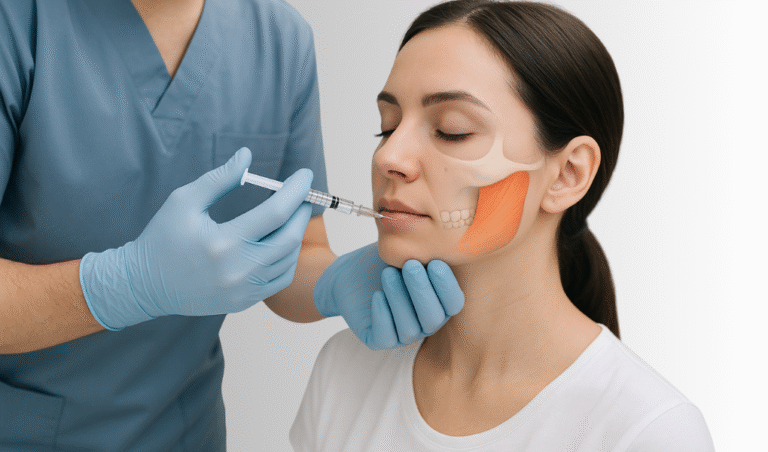Biting Tongue in Sleep: Causes, Symptoms, and Treatments
A sudden bite during sleep is very irritating and painful. Most people can face this issue without even knowing, which causes sores and other oral health issues. It is very important to know why this happens because this is the first step to finding the exact solution against biting Tongue in sleep.
This article will help you to learn about this problem and discover why you are biting your tongue in sleep. We also discuss its symptoms, causes, and effective methods to prevent problems disrupting your nights. Whether it is related to stress, bruxism, or sleep disorder, we cover the main issues that play a role in this issue.
Understanding Tongue Biting During Sleep
Biting your tongue in sleep is the most common issue that can lead to discomfort, swelling, or cuts in the mouth. This happens mostly when you are sleeping, facing stress, anxiety, or sleep disorders like bruxism or sleep apnea. So first understand this issue and then get the steps to manage this condition for protecting your tongue while sleeping.
Common Causes of Tongue Biting at Night
There are various factors that play a role in causing tongue biting in sleep. Identifying the main reason is the key to protecting yourself from tongue-biting. Here are some common reasons why this problem happens:
- Bruxism (Teeth Grinding): Facing teeth grinding at night puts pressure on the tongue, which leads to accidental bites.
- Sleep Apnea: If your breathing process is interrupted during sleep, it can cause muscle tension, which may lead to biting.
- Stress and Anxiety: These factors can cause muscle tension that leads to unconscious tongue biting.
- Nocturnal Seizures: In most cases, having seizures during sleep will result in biting the tongue.
Recognizing the Symptoms of Tongue Biting During Sleep
Tongue biting in sleep is not mostly noticed until feeling pain and irritation when waking up. This is not good for your health and becomes complicated over time if not untreated. You can take important steps to protect your oral health and prevent further damage.
- Pain or Swelling on the Tongue: In case if you awake with soreness, cuts, or swelling on your Tongue, this is a strong sign that you are facing Tongue biting during the night. The pain caused by this problem is mild or can be severe sometimes.
- Teeth Marks on the Tongue: You can see the cuts and lines on your tongue are the clue that you have this problem. These marks will appear on the sides of your tongue and can be the result of a lot of pressure from excessive pressure from grinding or clenching your teeth.
- Frequent Jaw Pain or Headaches: Having a lot of tension in your jaw or headaches after waking up will show that you are passing from teeth grinding or clenching, both of which can trigger tongue biting in sleep.
- Disrupted Sleep: If you wake up feeling tired or with a dry mouth, it can be from biting your tongue during sleep. This can lead to irritation at night during sleep and cause fatigue in the morning.
Effective Treatments for Tongue Biting in Sleep
If you are suffering from tongue biting in sleep, there are several treatments and methods you can try to reduce or eliminate this issue. Managing and knowing the main causes and finding the right solution to prevent yourself from this issue and oral health:
- Mouthguards or Splints: Wearing a mouthguard at night will help you a lot in preventing tongue biting and protecting your teeth.
- Stress Management Techniques: Making a routine of daily exercises like deep breathing, yoga, and meditation can reduce stress and help to relax your jaw muscles.
- Treating Bruxism: If teeth grinding is the cause, your dentist may recommend the best nightguard or other treatments to manage bruxism.
- Sleep Apnea Treatment: In case sleep apnea is the reason behind this issue, using a CPAP machine or other prescribed treatments can improve sleep and reduce muscle tension.
- Therapy or Counseling: If anxiety or stress can lead to tongue biting in sleep, visiting your therapist can help manage these emotions and reduce nighttime muscle tension.
FAQs
Conclusion
Tongue biting during sleep looks like a small issue in the start, but with time, if you do not manage it, this problem becomes severe and leads to discomfort, oral health problems, and disturbed sleep patterns. The necessary step is to completely understand this problem with the help of early symptoms like pain, swelling, or visible teeth marks on the tongue. Biting your tongue in sleep is caused by conditions like bruxism or sleep apnea, and there are also effective ways to reduce or manage it, like practicing routine exercises like deep breaths, meditation, or yoga. You can also use mouthguard to manage the stress and other options that are available or prescribed by your doctor.






